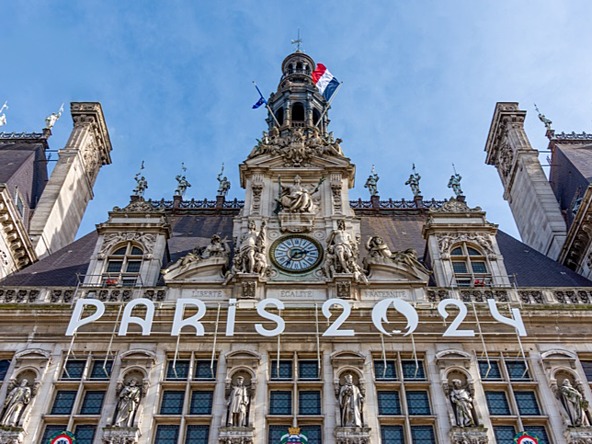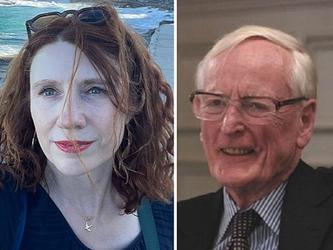The Olympics: Politics has become an inevitable part of sport

When French president Emmanuel Macron announced the snap election back in June, International Olympic Committee (IOC) president Thomas Bach and Paris 2024 organisers said that political upheaval in France would not affect the Olympics.
This seems unlikely; even before the French election was announced, world politics were always going have an impact on the games. Sport and politics seem inseparably linked and the Olympics in particular have been affected by political issues many times over the years: South Africa was excluded between 1962 and 1992 because of its apartheid policy; in 1968 there was debate about cancelling the games, because of the political situation in Mexico; the 1980 and 1984 Games were famously boycotted because of Russia’s behaviour in Afghanistan; and now Paris 2024 is excluding Russia and Belarus because of the war in Ukraine.
But how do people feel about this? Data in the Archive of Market and Social Research shows that, historically, people have wanted to keep politics out of sport. But over the years, as more athletes have stepped up to use their platforms to make political statements, and governments have continued to intervene and interfere, have we now become resigned to the fact that we can’t keep politics out of sport? Let’s look back.
1968 Mexico
Initially the political background was the exclusion of South Africa. The NOP September Review reported: “There is no doubt that the public would like politics and sport to be kept apart. Two people out of three believe that South Africa should be allowed to take part in the Olympic games, and only 25% think that South Africa should be excluded.”
A month later, with rioting in Mexico City adding further tensions, polls revealed that 76% thought the games should go ahead as planned; only 19% were in favour of cancelling them.
The 1968 games were also notable for the first instance of the black power salute made by American athletes Tommie Smith and John Carlos. And Czechoslovakian gymnast Věra Čáslavská made a silent protest against the recent Soviet invasion of Czechoslovakia.
1980 Moscow
In 1980 the political situation was dominated by Russia’s invasion of Afghanistan in 1979. Prime minister Margaret Thatcher and US president Jimmy Carter called for a boycott, but two thirds of the British public wanted Britain to take part. Even those who were for a boycott were not totally hardline and showed a fair degree of realism – far more people said it was ‘to make a gesture’ than thought it would have any real effect.
At the same time 80% of the public thought that South Africa should be allowed to take part in the Moscow games although Apartheid policy was still in place. In general most people wanted to keep politics out of sport, but only half felt that was possible.
In the event, 65 countries (including Britain) did boycott the games as a protest against Russia’s invasion of Afghanistan. However, British athletes did attend as the UK government allowed its athletes to choose, which could be seen as a thoroughly British compromise. The US athletes never competed; Carter forbade them.
1984 Los Angeles
In 1984 Russia and its allies retaliated by boycotting the Los Angeles games, claiming that their athletes would not be safe from protests and possible physical attacks. The British public didn’t buy this; over half ( 53%) thought that the reasons was to retaliate for the American boycott of the Moscow Olympics and a quarter ( 25%) thought that it was because they fear that many of their competitors would have too much freedom and opportunity to defect to the West – only 14% believed Russia’s given reason.
Asked about politics and the games, 90% agreed that there was ‘too much political interference in the Olympic games these days’, and 81% agreed that ‘the original ideals of the Olympic movement is being lost these days’.
2024 Paris and beyond
Today, as ever, history is repeating itself. Russia and Belarus are to be excluded from the 2024 Paris Games because of the war in Ukraine. And people seem more accepting of the inevitability of politics affecting the games: YouGov research shows that only 16% of Brits say these athletes should be able to represent their country.
Sports people have a platform and expressing political views is now commonplace – the direct relationships that people in the public eye have with their fans via social media encourages this. Big global events such as the Olympics bring out the best and worst of nations, and political capital will always be made. Politics will be part of the upcoming games, regardless of what the IOC, Macron and the watching public may want.
By Judith Staig and Phyllis Macfarlane at the Archive of Market and Social Research

We hope you enjoyed this article.
Research Live is published by MRS.
The Market Research Society (MRS) exists to promote and protect the research sector, showcasing how research delivers impact for businesses and government.
Members of MRS enjoy many benefits including tailoured policy guidance, discounts on training and conferences, and access to member-only content.
For example, there's an archive of winning case studies from over a decade of MRS Awards.
Find out more about the benefits of joining MRS here.













0 Comments